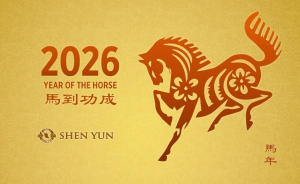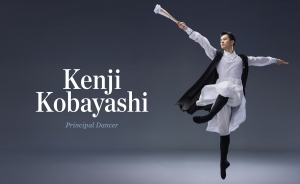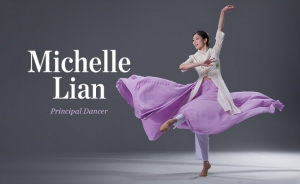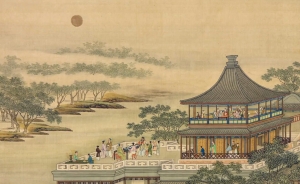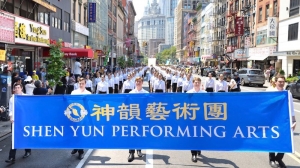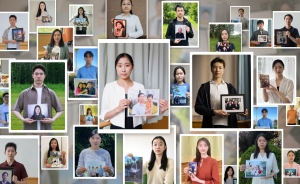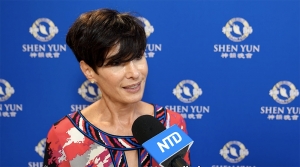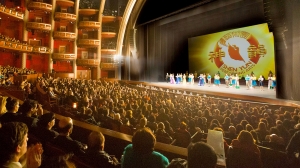JoongAng Daily: Chinese Performance Artists Search for the Divine
By Kim Hyung-eu, Staff Reporter
The Cultural Revolution in the 1960s destroyed much of China’s rich heritage, but decades later Chinese artists are conceptualizing revolution by reviving classical traditions that date back more than 5,000 years.
The artists formed a nonprofit professional performing arts troupe in New York called Divine [Shen Yun] Performing Arts in 2006. Independent of China’s communist regime, the troupe consists of three dance companies, two orchestras and some 200 choreographers, composers, costume designers, backdrop artists and others.
Each year they premiere an entirely new program of dances, songs and musical scores. The performances portray universal themes of kindness, compassion and the kind of courage that triumphs over adversity. The artists draw on ancient legends and heroes to devise powerful choreography, costumes, props and sets.
The company has had its fair share of adversity over the past two years. Advertising opportunities and promotion contracts have fallen through, and, more worrying, the troupe claims that the Chinese Communist Party of China has tried to interfere with productions. China has no state-sanctioned religion and the performers allege that the government wants to suppress works that explore the divine origins of traditional Chinese culture.
Despite these setbacks, Divine [Shen Yun] Performing Arts has performed for more than 800,000 people all over the world, garnering positive reviews from major newspapers, at New York’s Radio City Music Hall, London’s Royal Festival Hall, Los Angeles’ Kodak Theatre and Paris’ Le Palais de Congres, among others.
The next stop on the calendar is Korea, for the fourth time. In the past, the troupe has experienced contract cancellations with local venues, and it’s the same this year. Just weeks before a planned performance in the capital, the venue was switched from Sangmyeong Art Center, Jongno to Universal Arts Center, Gwangjin District, in the east of the city.
But despite limited promotional activities, organizers say about 90 percent of seats for the Daegu performances have been reserved.
29. Januar 2009


